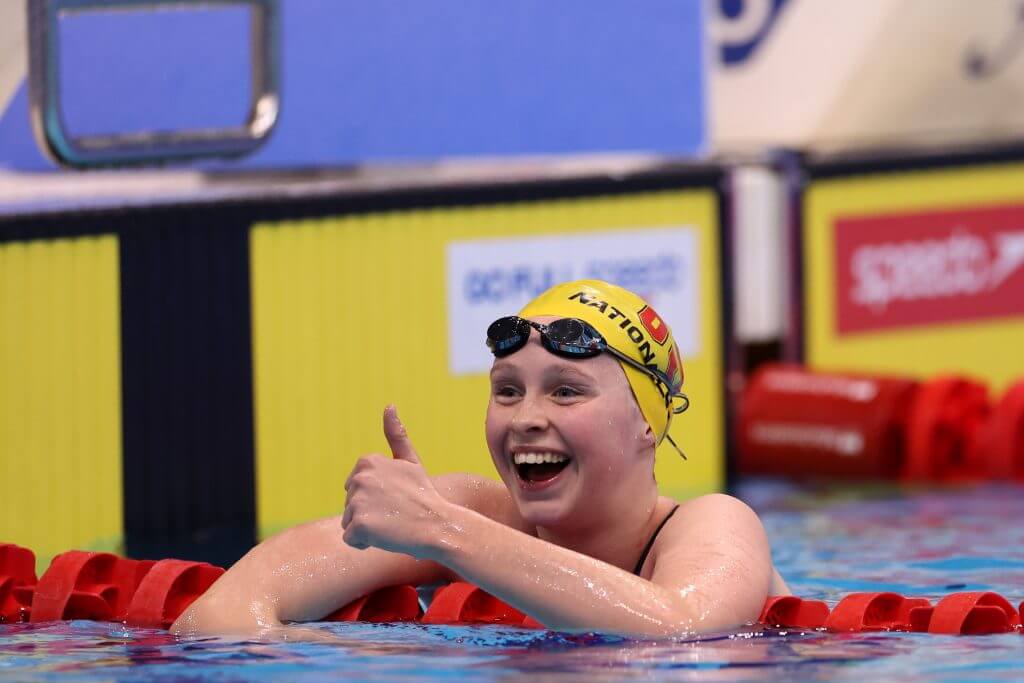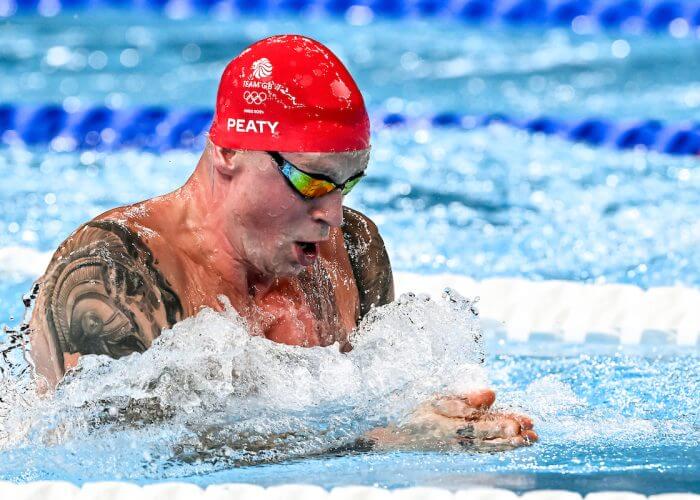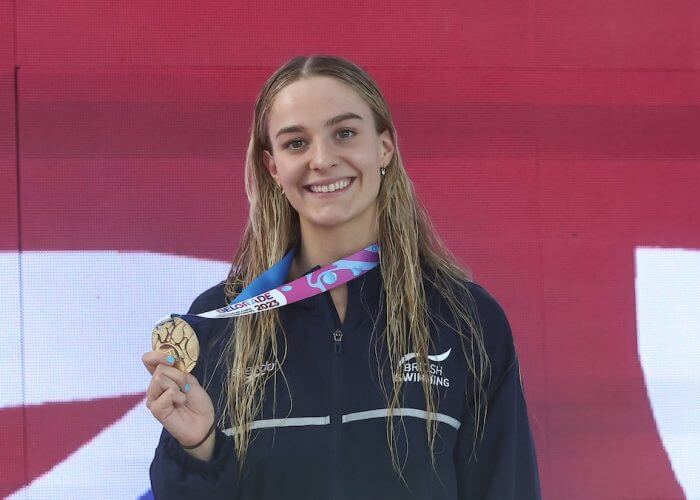The Future of Aquatics GB: Where British Swimming Stands on Road to LA28

Following the Olympic Games in Paris, there is room for reflection on the British swimming team. Paris showed a significant drop in podium places compared to the achievements of Tokyo 2020. The medal comparison from Tokyo to Paris tells a story, as the team placed third on the table in Tokyo, but was ninth in Paris. The British squad secured only one gold medal this summer, a contrast from the four golds achieved in Tokyo. The sole gold was won by the quartet of James Guy, Tom Dean, Matt Richards and Duncan Scott in the men’s 800 freestyle relay, which was a reminder of the talent that sits within men’s freestyle in the UK.
Challenges in Men’s Swimming

Adam Peaty: Photo Courtesy: Giorgio Scala / Deepbluemedia
Men’s swimming within the UK has always had an upper hand, with the development of age group swimmers into podium places seeming to achieve more than on the women’s side. However, even this year, the men’s team did not live up to the high expectations set by previous Olympic cycles. One major challenge was Adam Peaty’s well-documented struggle with illness. He announced that he had COVID the night of the 100-meter breaststroke final and while it may have hindered his chase for gold, Peaty dug deep to earn silver in the event.
However, for other members on the team, the search for medals came with a heavy weight of expectation. Several individual performances yielded silver medals and frustrating fourth-place finishes.
There was no male breakout swimmer in Paris, unlike what we saw at the Tokyo Olympics. Dean and Richards made their mark on the world stage three years ago. However, in Paris, there was not a similar surge of emerging talent which left a lot of the burden of high-level performance on veteran members like Scott and Guy. This lack of emerging talent highlights the importance of nurturing the next generation.
Struggles in Women’s Swimming
![Freya Colbert thumbs up 400m IM [MorganHarlowBritishSwimming]](https://vmrw8k5h.tinifycdn.com/news/wp-content/uploads/2023/04/Freya-Colbert-thumbs-up-400m-IM-MorganHarlowBritishSwimming-700x500.jpg)
Freya Colbert: Photo Courtesy: Morgan Harlow/British Swimming
At neither the Tokyo nor Paris Games did a female athlete win an individual medal. These shortcomings have raised questions about the overall strength and development of female swimming within Britain. Despite multiple finalists and several fourth-place finishes, British women were unable to convert their impressive performances into podium success. Freya Colbert’s fourth-place finish in the 400 IM was one of the most noteworthy performances. Colbert, the Doha world champion in this event, made her Olympic debut and narrowly missed out on a medal. Similarly, Katie Shanahan in the 200 backstroke and Abbie Wood in the 200 IM also delivered strong performances but fell just short of the podium.
These close podium finishes suggest that the talent is there, but why is the talent not transitioning into medals? One potential reason is the historic underinvestment in female swimmers. Although Aquatics GB has made increasing strides in development and funding with programs like the ‘World Class Program’ and ‘Podium Potential Program,’ whose aim is to develop young athletes, the legacy of these disparities is still being felt and may continue to be felt for years to come.
Promising Talent on the Horizon

Leah Schlosshan: Photo Courtesy: British Swimming
Despite the challenges, the future of British Swimming remains bright, particularly with the emergence of young female talent. The most notable name is Amelie Blocksidge, a 15-year-old British senior champion who has shown immense potential in the long-distance freestyle events. In the individual medley, swimmers like Leah Schlosshan and Phoebe Cooper, who took gold and silver in the 200 medley at the European Juniors, are lurking. This talent gives an insight into the promising future within these disciplines. It also shows that talent exists within the age group swimmers.
The challenge is ensuring that these young swimmers’ transition smoothly from junior to senior ranks, a phase which can see many athletes struggle. It is essential that Aquatics GB not only focuses on developing these athletes technically but also provides the psychological and physical support required to make the jump to elite-level competition.
Strategic Leadership and Development
Looking to the future, the expertise of Nathan Hilton, now head of development for Aquatics GB, will be key. Hilton’s role will be crucial in shaping the next generation of swimmers like Blocksidge and Schlosshan. As part of the World Class and Podium Potential programs, many swimmers are identified as potential future stars. Over the next four years, leading into LA28, it is critical that Aquatics GB implements targeted strategies. These focus points will have been identified from the challenges faced in Paris to ensure athletes are not only supported but nurtured into consistent podium contenders.
While the performance in Paris was below the standard set in Tokyo, there are plenty of reasons for optimism. The relay gold medal and several near-podium finishes suggest that with the right support and investment, both the men’s and women’s teams can regain their status as top podium contenders.




It’s very disparaging to describe Peaty’s Olympic silver as a “comeback that ultimately wasn’t to be.” I hate this ridiculous attitude that anything but gold is a failure.